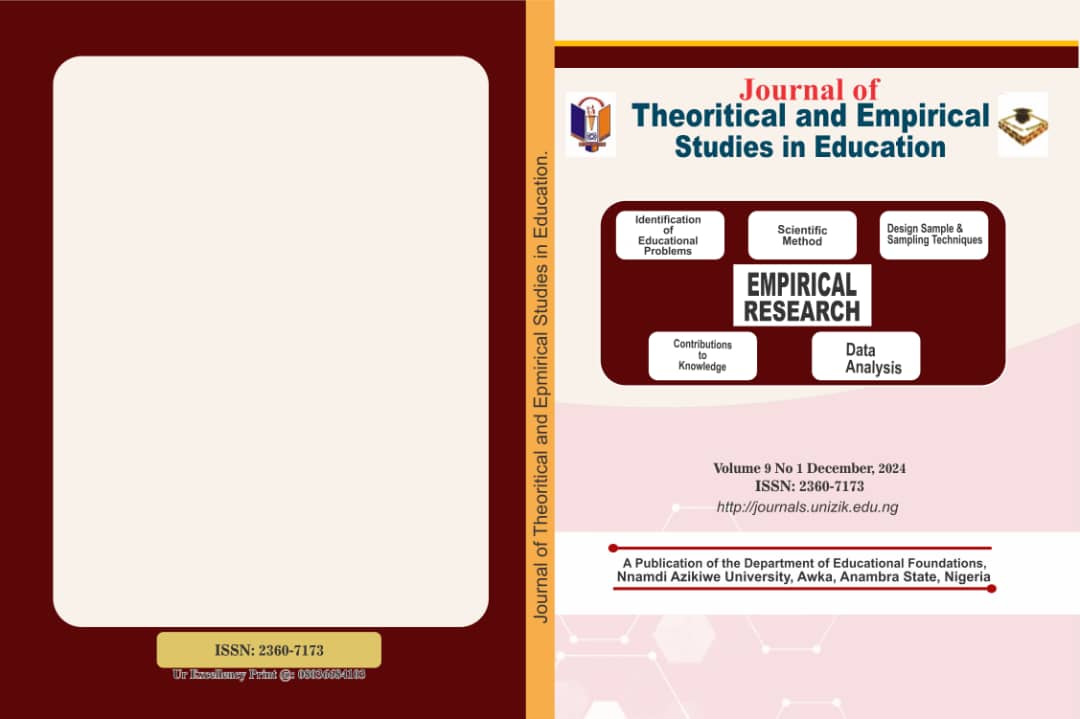Do Parents/Guardians of In-School Adolescent Hawkers Provide Academic Support for Them? Examining the Roles of Gender and Living with Parents/Guardians
Keywords:
Adolescents, hawking, learning outcomes, parent-child relationship, parental supportAbstract
In-school adolescent hawkers may face difficulties in their studies, emphasizing the need for extra support. Parents or guardians, who are positioned to monitor their overall wellbeing, are critical to this support. However, there is a dearth of studies
investigating parenting academic supports of this minority student population. As a result, our cross-sectional study investigated parental academic support for in-school adolescent hawkers, as well as the intersection of gender, living with either parent
or guardian, and academic support provided. The study included 230 in-school adolescent hawkers selected using the snowball sampling technique. Data were gathered using the adaptation of Gonida and Cortina (2014) Parental Involvement in
Homework Scale (PIHS). Major findings revealed that parents provided academic supports to their children. Furthermore, male in-school adolescent hawkers had significantly lower mean scores on parental monitoring, parental reinforcement, and parental instructional support than their female counterparts, whereas in-school adolescent hawkers who live with their parents had significantly higher mean scores on parental monitoring, parental reinforcement, and parental instructional support
than their guardian counterparts. It was concluded that, while parents gave academic supports to their children, gender and the kind of relationship could influence the level of support provided. The implication of the findings was highlighted.




